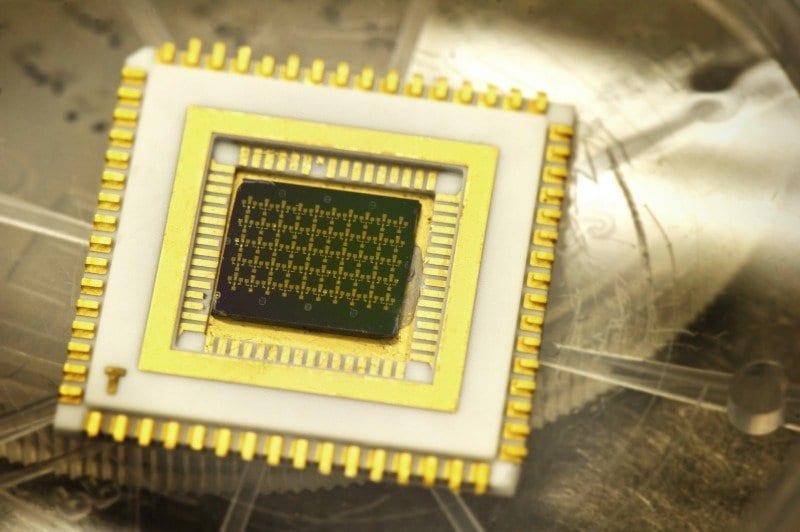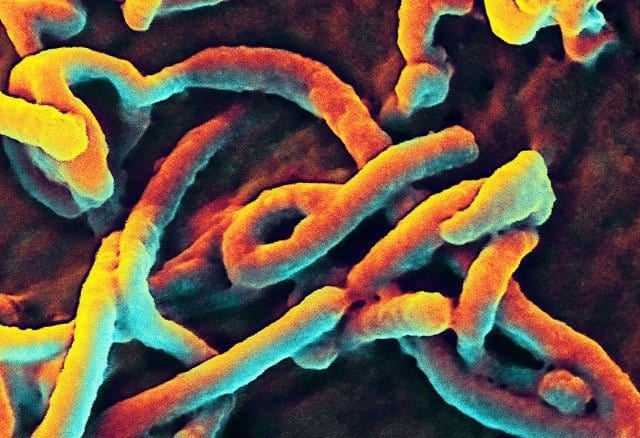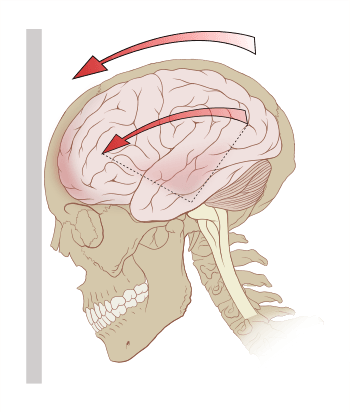
via University of Texas Arlington
A team of researchers has discovered a way to cool electrons to -228 °C without external means and at room temperature, an advancement that could enable electronic devices to function with very little energy.
The process involves passing electrons through a quantum well to cool them and keep them from heating.
The team details its research in “Energy-filtered cold electron transport at room temperature,” which is published in Nature Communications on Wednesday, Sept. 10. “We are the first to effectively cool electrons at room temperature. Researchers have done electron cooling before, but only when the entire device is immersed into an extremely cold cooling bath,” said Seong Jin Koh, an associate professor at UT Arlington in the Materials Science & Engineering Department, who has led the research. “Obtaining cold electrons at room temperature has enormous technical benefits.
For example, the requirement of using liquid helium or liquid nitrogen for cooling electrons in various electron systems can be lifted.” Electrons are thermally excited even at room temperature, which is a natural phenomenon. If that electron excitation could be suppressed, then the temperature of those electrons could be effectively lowered without external cooling, Koh said. The team used a nanoscale structure – which consists of a sequential array of a source electrode, a quantum well, a tunneling barrier, a quantum dot, another tunneling barrier, and a drain electrode – to suppress electron excitation and to make electrons cold.
Cold electrons promise a new type of transistor that can operate at extremely low-energy consumption. “Implementing our findings to fabricating energy-efficient transistors is currently under way,” Koh added. Khosrow Behbehani, dean of the UT Arlington College of Engineering, said this research is representative of the University’s role in fostering innovations that benefit the society, such as creating energy-efficient green technologies for current and future generations. “Dr. Koh and his research team are developing real-world solutions to a critical global challenge of utilizing the energy efficiently and developing energy-efficient electronic technology that will benefit us all every day,” Behbehani said. “We applaud Dr. Koh for the results of this research and look forward to future innovations he will lead.” Usha Varshney, program director in the National Science Foundation’s Directorate for Engineering, which funded the research, said the research findings could be vast.
The Latest on: Cold electrons
[google_news title=”” keyword=”Cold electrons” num_posts=”10″ blurb_length=”0″ show_thumb=”left”]
via Google News
The Latest on: Cold electrons
- Burgum gives EV plan the cold shoulderon May 1, 2024 at 2:56 pm
Gov. Doug Burgum bashed the idea of electric vehicles in North Dakota as the state Industrial Commission passed, at least for now, on funding a regional plan for EVs. “We know that electric vehicles ...
- The Recipe For Galaxy Formation May Be Hidden In Complex Dark Matteron May 1, 2024 at 4:50 am
Dark matter appears to be more complex than we thought: a new scientific approach is trying to get to the bottom of the cold dark matter concept. The post The Recipe For Galaxy Formation May Be Hidden ...
- Think Twice Before Putting These Common Things In The Microwaveon April 30, 2024 at 7:20 am
If you think forks and spoons are the only things that shouldn't be microwaved, take a look at these non-nuking nasties that can endanger you and your kitchen.
- RAW VIDEO: Swiss Scientists Solve Mystery Of 'Deadly Upwards Lightning' X-Rayson April 30, 2024 at 2:47 am
Credit: EMC EPFL CC BY SA/Cover Images Swiss researchers have recorded X-rays being produced by upward positive lightning flashes for the first time ever. The observation gives important insight into ...
- Scientists Uncover Surprising Reversal in Quantum Systemson April 26, 2024 at 12:13 pm
Generally, it's advised not to compare apples to oranges. However, in the field of topology, a branch of mathematics, this comparison is necessary. Apples and oranges, it turns out, are said to be ...
- Across the universe, dark matter annihilation could be warming up dead starson April 25, 2024 at 6:00 am
"The capture and annihilation of dark matter in neutron stars would provide a source of heating that stops the star from getting really cold." ...
- Record electron temperatures for a small-scale, sheared-flow-stabilized Z-pinch fusion device achievedon April 23, 2024 at 8:00 am
In the nine decades since humans first produced fusion reactions, only a few fusion technologies have demonstrated the ability to make a thermal fusion plasma with electron temperatures hotter than 10 ...
- Home Batteries Give Me Actual Independence, Especially Off the Gridon April 21, 2024 at 9:01 am
The ancient Greeks told stories about harnessing the power of fire. Today, home batteries help me accomplish that on a daily basis.
- An electric eruptionon April 19, 2024 at 8:30 am
The dramatic volcanic eruption on a remote island in Indonesia's North Sulawesi province on April 17 threw a fiery-red column of lava, incandescent rock and ash as much as 3 km (2 miles) into the sky.
- Research reveals a surprising topological reversal in quantum systemson April 18, 2024 at 12:22 pm
In principle, one shouldn't compare apples to oranges. However, in topology, which is a branch of mathematics, one must do just that. Apples and oranges, it turns out, are said to be topologically the ...
via Bing News










